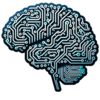
Back Outomatiese beplanning en skedulering Afrikaans التخطيط الآلي والجدولة Arabic Avtomatlaşdırılmış planlaşdırma Azerbaijani Planificación automática Spanish زمانبندی و برنامهریزی خودکار Persian Planification (intelligence artificielle) French Ավտոմատացված պլանավորում Armenian Pianificazione automatica Italian 自動計画 Japanese خپلکارې پلان جوړونه او مهالوېش Pashto/Pushto
This article includes a list of general references, but it lacks sufficient corresponding inline citations. (January 2012) |
| Part of a series on |
| Artificial intelligence (AI) |
|---|
Automated planning and scheduling, sometimes denoted as simply AI planning,[1] is a branch of artificial intelligence that concerns the realization of strategies or action sequences, typically for execution by intelligent agents, autonomous robots and unmanned vehicles. Unlike classical control and classification problems, the solutions are complex and must be discovered and optimized in multidimensional space. Planning is also related to decision theory.
In known environments with available models, planning can be done offline. Solutions can be found and evaluated prior to execution. In dynamically unknown environments, the strategy often needs to be revised online. Models and policies must be adapted. Solutions usually resort to iterative trial and error processes commonly seen in artificial intelligence. These include dynamic programming, reinforcement learning and combinatorial optimization. Languages used to describe planning and scheduling are often called action languages.
- ^ Ghallab, Malik; Nau, Dana S.; Traverso, Paolo (2004), Automated Planning: Theory and Practice, Morgan Kaufmann, ISBN 1-55860-856-7, archived from the original on 2009-08-24, retrieved 2008-08-20
